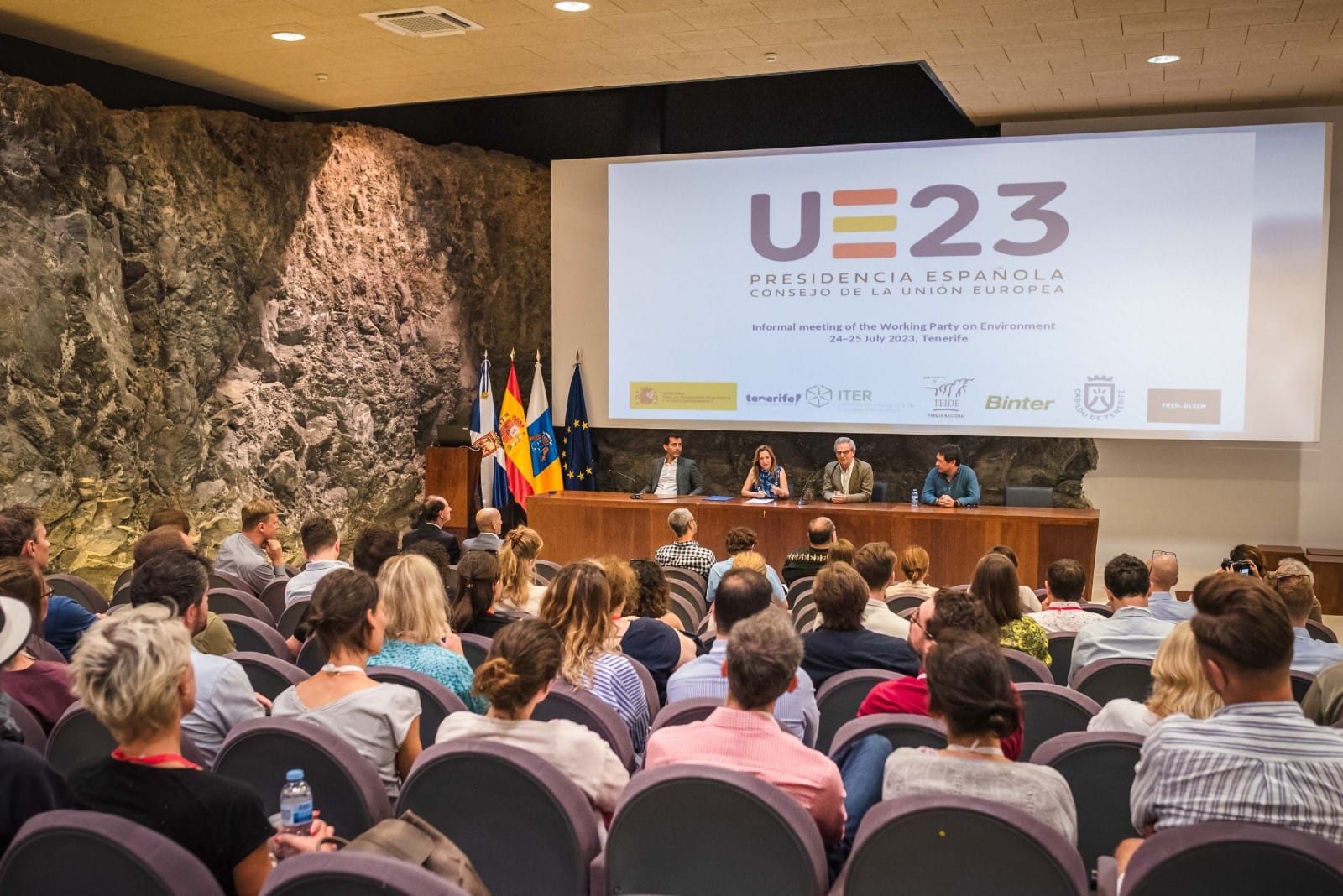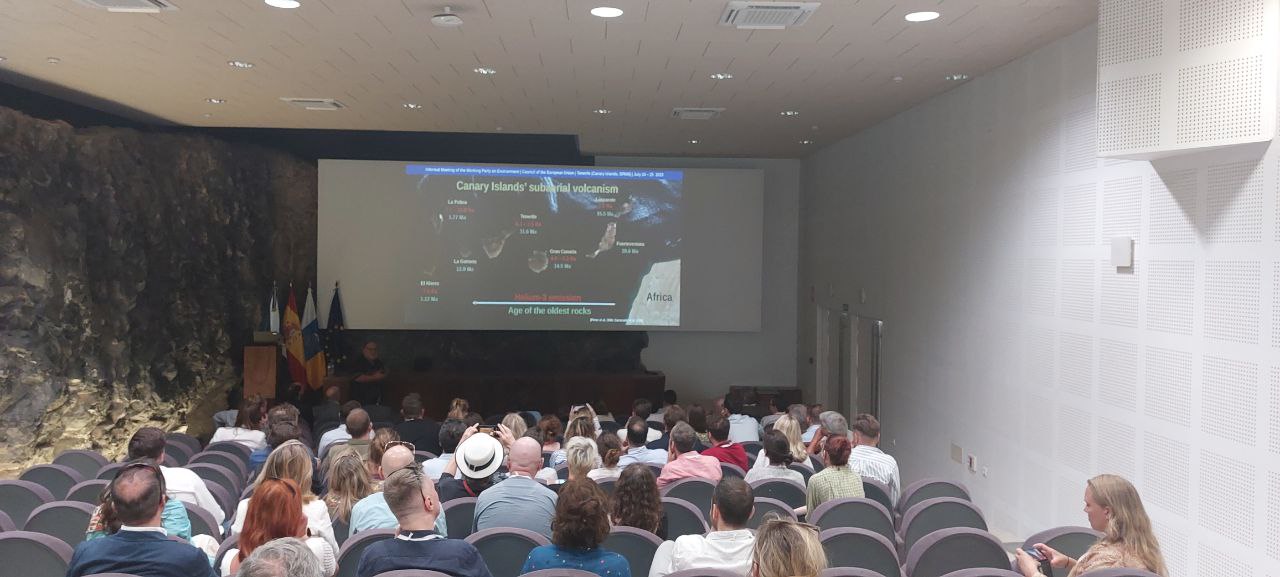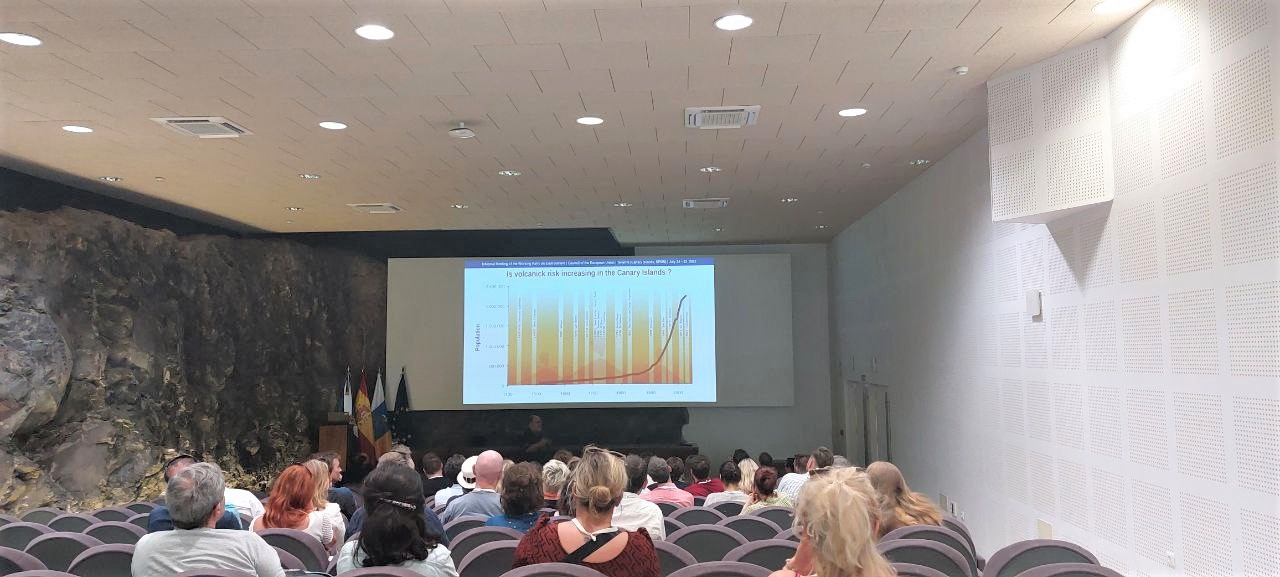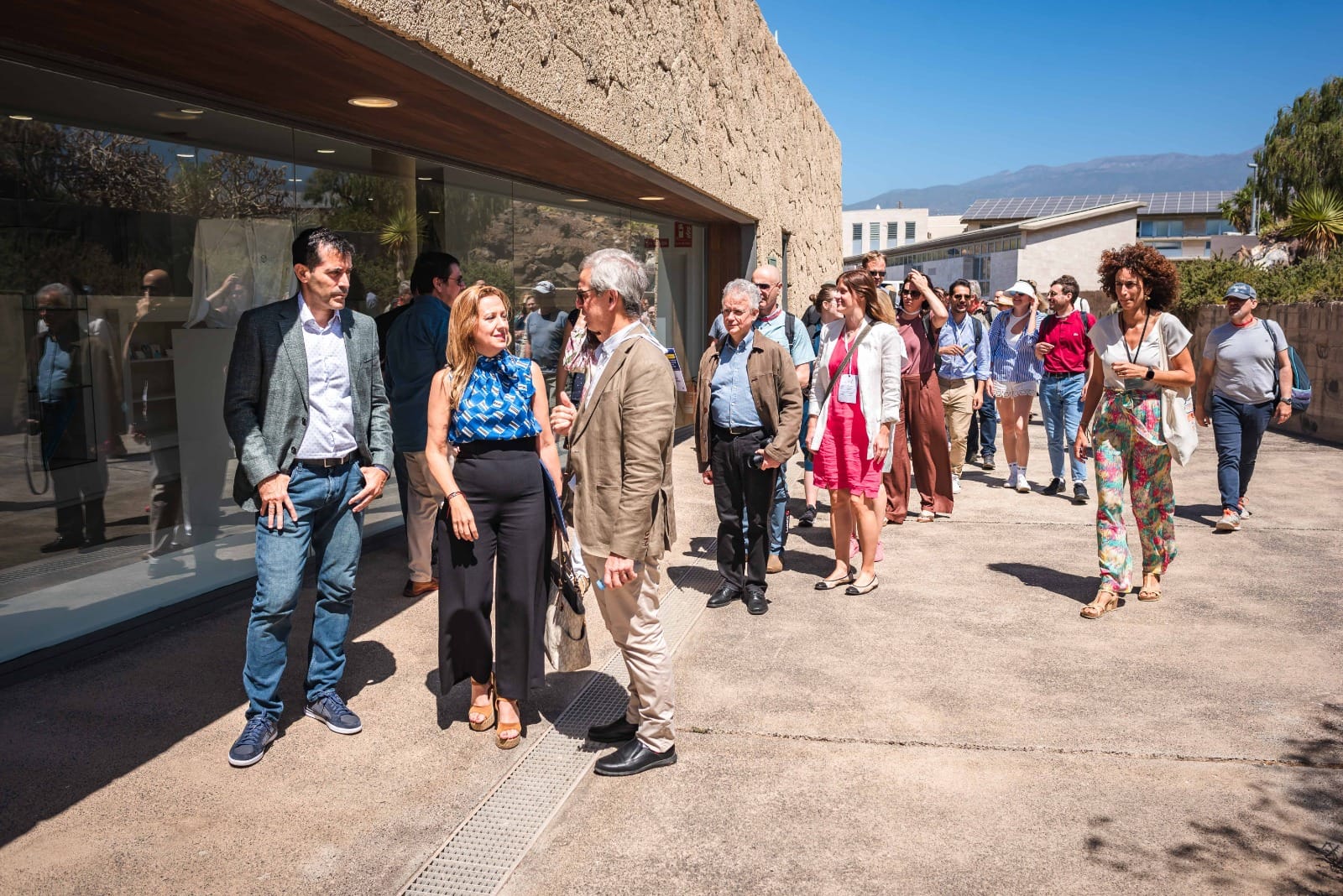The visit included two working sessions on the challenges of sustainable transportation in island territories and environmental management in volcanic areas, culminating with a visit to the Bioclimatic Houses of ITER, as an example of a real-scale bioclimatic laboratory that combines architecture and sustainability.
On Monday, July 24th, the Institute of Technology and Renewable Energy (ITER), under the authority of the Cabildo of Tenerife, welcomed the visit of 70 councilors who are part of the Working Group on Environment of the European Union Council.
This visit is part of a comprehensive program developed on the island of Tenerife, in the framework of the off-site meeting of the Working Group on Environment, which is responsible for preparing the works of the EU Council on Environment.
The visit to Tenerife, organized by the Permanent Representation of Spain to the European Union (REPER) under the Spanish Presidency of the EU Council, aims to allow representatives from other member states to firsthand experience the specific characteristics and issues related to biodiversity, nature conservation, environmental management, and sustainability in Tenerife (and the Canary Islands in general). These topics are subjects of discussion in both the Working Group and the Council on Environment in Brussels.
Rosa Dávila, the President of the Cabildo of Tenerife, was in charge of receiving the group in the ITER Auditorium, where she delivered words of welcome, highlighting the main challenges the island faces regarding the environment and emphasizing the commitment of the Cabildo and ITER to continue working towards a more sustainable development on the island. The event was also attended by the Councilor for Innovation, Research, and Development, Juan José Martínez, the Councilor for Natural Environment, Sustainability, Security, and Emergencies, Blanca Pérez, and the Insular Director of Natural Environment, Pedro Millán.
The day included two working sessions. The first focused on the challenges of sustainable transportation in island territories, with the participation of the CEO of Fred. Olsen, S.A., Andrés Marín, given the key role of this shipping company in the maritime sector for cohesion and connectivity between the islands.
The second working session titled «Challenges of environmental management in volcanic areas. The example of La Palma» was conducted by the scientific director of the Environmental Area of ITER and scientific coordinator of the Volcanological Institute of the Canary Islands (Involcan), Nemesio Pérez. He delivered a presentation on volcanic risk in the Canary Islands and the importance of its management, addressing numerous questions related to the recent volcanic crisis in La Palma and the probability of future eruptions in the Canary Islands.
After the working sessions, the group took a guided tour of the Bioclimatic Houses of ITER, the real-scale bioclimatic laboratory. These 24 houses represent an innovative project that combines architecture and sustainability to create a habitable environment in harmony with the natural surroundings. Designed with bioclimatic criteria, they harness the local climatic conditions to reduce the need for artificial energy and improve energy efficiency.
Participants from Germany, Belgium, Denmark, Spain, France, Ireland, Latvia, Luxembourg, the Netherlands, Sweden, Bulgaria, Slovakia, Estonia, Greece, Malta, Poland, the Czech Republic, Austria, Cyprus, Slovenia, Finland, Hungary, Italy, Portugal, Croatia, and Romania took part in the event.
The Permanent Representation (REPER) consists of 27 Member States, including Spain, which has its own embassy in the European capital, Brussels. These entities serve as the official diplomatic representation of each country to channel their relations with EU institutions.
The program of meetings and activities hosted by the island of Tenerife is part of the off-site meeting of the Working Group on Environment, which prepares the works of the EU Council on Environment.




